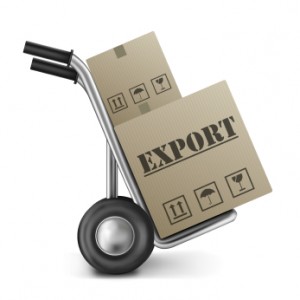 America is a melting pot of cultures, ideologies, and lifestyles. But unlike other nations that struggle to hold diverse populations together, the people of this country have remained steadfast and united in their determination to protect the principles of self-governance against all threats both foreign and domestic – and hence the name, the United States of America. But what Americans of all races, creeds, colors, and belief systems have refused to surrender without a fight is on the verge of being bartered away by U.S. trade representatives acting under the authority of the Obama Administration.
America is a melting pot of cultures, ideologies, and lifestyles. But unlike other nations that struggle to hold diverse populations together, the people of this country have remained steadfast and united in their determination to protect the principles of self-governance against all threats both foreign and domestic – and hence the name, the United States of America. But what Americans of all races, creeds, colors, and belief systems have refused to surrender without a fight is on the verge of being bartered away by U.S. trade representatives acting under the authority of the Obama Administration.
On September 6, the fourteenth round of negotiations for the Trans-Pacific Partnership Treaty opened in Leesburg, Virginia. This prospective international agreement is being crafted for the purpose of removing any barriers to free trade that still may exist between the various potential signatories, and the Obama Administration is claiming that if this treaty is approved it will create millions of new export-related jobs for American workers. Nine nation-states are involved in the treaty talks, including the U.S., Australia, New Zealand, Chile, Peru, Malaysia, Vietnam, Singapore, and Brunei Darussalam. In addition, Canada and Mexico have also been invited to join the new alliance, Japan has indicated its interest in becoming involved, and there are hopes that China will eventually agree to join this consortium of nations dedicated to promoting the sacrosanct principles of free trade.
The Illusions Of Free Trade: Who Really Profits?
With the historical memory of the American people being as short as it is, there are probably many who have forgotten the 1992 presidential election campaign, when Texas businessman Ross Perot ran the most successful third party/independent candidacy that has been seen in this country in the last 100 years. Perot’s campaign strategy, which proved to be extraordinarily effective, was largely centered around his opposition to the North American Free Trade Agreement (NAFTA), which was being debated in Congress at the time. Supporters of NAFTA claimed that if this treaty passed it would mean millions of new jobs for the American people, who would benefit from the removal of any and all barriers that were inhibiting free and open trade between the United States, Mexico, and Canada. (Sound familiar?) Perot, in countering these assertions, famously predicted that if NAFTA passed it would be accompanied by “a giant sucking sound” caused by dozens of companies rushing to relocate American manufacturing jobs to Mexico.
For committing the cardinal sin of speaking out against the religion of free trade, which had the broad support of both Democrats and Republicans in Congress, as well as multinational corporations headquartered in the U.S. and elsewhere around the world, Perot was branded a kook, a lunatic, and, most damning of all, a protectionist, which in the political culture is just about the worst thing that anyone could ever be called. (Only being called a “conspiracy theorist” would be considered worse,) But in the twenty years that have passed since NAFTA became law, Perot’s predictions have been entirely vindicated – calculations vary, but it is estimated that more than a million well-paying American jobs, largely in manufacturing, have been outsourced to Mexico since NAFTA first went into effect.
While the annual U.S. trade deficit with our nearest neighbors to the south has soared past the $60 billion mark, wages in the U.S. and in Mexico have been steadily going down, which means that wherever the profits from Mexico’s trade surplus have been going it has not been into the pockets of the country’s citizens. The only real winners in the free trade game have been the multinational corporations, whose profits have skyrocketed thanks in part to the kind of outsourcing that the NAFTA free trade agreement has helped to facilitate. This perhaps explains why the corporate world is so strongly in favor of the Trans-Pacific Partnership Treaty, which represents a blatant attempt to spread the policies of NAFTA to a much larger geographical region.
Throughout history, trade was seen as an effective and sensible way for nation-states or empires to supplement, but certainly not replace, their existing domestic economies. But in the modern context, trade has morphed into something called “free trade,” an ideologically correct hammer that powerful economic interests and the political hacks they control have been using to pound national economies into submission. This goofy concept has provided the excuse that the world’s most greedy corporations have needed to justify their ongoing campaign to turn the entire planet into a source of cheap and disposable labor, and NAFTA, the WTO, and now the TPP are the means being used to help them achieve these nefarious ends.
New book reveals how to keep this “gangster” economy from murdering your money…
The Trans-Pacific Corporate Protectionist Treaty
One of the remarkable – and revealing – facets of the Trans-Pacific Partnership Treaty negotiations is that the nations involved, for the most part, are already trading freely with each other. So even if we accept the idea that barriers to so-called free trade are always automatically a problem, they don’t appear to be much of a factor in the economic relations between the states that are involved in these trade talks. But any surprise or confusion about such a comprehensive “free trade” treaty being negotiated in these circumstances melts away when you look more closely at some of the details of the agreement.
Two of the primary goals of the US.. representatives involved in treaty talks are to strengthen copyright laws and beef up patent protections, which are of great interest to the entertainment industry and the pharmaceutical giants respectively. Much like the late unlamented Stop Online Piracy Act (SOPA), the Trans-Pacific Partnership Treaty, if passed, will turn every ISP provider, search engine sponsor, social networking site, and website owner into a guardian of copyrights, as all will be forced to take extraordinary steps to ensure that no copyrighted material of any type is ever posted on any internet address under their jurisdiction without the express permission of the corporate interest that happens to own that material. For Big Pharma, meanwhile, the Trans-Pacific Partnership Treaty is promising more draconian guarantees of data exclusivity and patent protection, which will make it even harder for generic drug producers to enter the market with more affordable alternatives to existing medicines.
These special gifts to a pair of powerful corporate interests all but invalidate the claim that this new treaty is about free trade first and foremost. In both instances, free trade will actually be restricted by TPP provisions, not expanded, in order to provide special privileges to politically connected industries. Because the negotiations for the Trans-Pacific Partnership Treaty are being kept secret, even from Congress—what we know is based entirely on leaked information—we don’t know what other giveaways or special protections for corporate and financial interests U.S. trade representatives might be dreaming up. But whatever they are, you can be sure they have nothing to do with promoting free trade and everything to do with helping the richest and most powerful corporations become even more rich and powerful.
“This International Court Finds You Guilty Of Practicing Democracy”
The people working on the Trans-Pacific Partnership Treaty may not be much interested in free trade that is actually free when it conflicts with the interests of giant corporations. However, when it comes to the right of sovereign democratic nations to pass laws designed to regulate economic activity occurring inside their own borders, that is a different story entirely.
Under the auspices of this treaty, an international tribunal will be set up to adjudicate disputes over what does or does not constitute a barrier to free trade. Basically, a corporation or business interest can claim that any laws a nation might choose to pass protecting workers, consumers, the environment, citizen’s rights, and so on present a threat to their capacity to maximize their profit margins, and should therefore be ruled illegal under TPP guidelines. What this will mean in practice is that no nation that belongs to the TPP will have the right to pass any laws regulating business relations or economic practice that rise even the slightest bit above the lowest common denominator, since such laws could conceivably impinge upon the absolute hegemony of powerful multinational corporations. So if the United States or Australia, for example, has workplace safety rules that are more stringent than, say, Vietnam, or China if they eventually join the original Gang of Nine, the international tribunal will be expected to declare the more costly rules illegal, forcing the offending nation to either pay a hefty fine or repeal the “unjust” laws post haste.
Americans of course frequently disagree on issues involving topics such as worker’s rights or environmental protections. Some feel the laws we already have restrict individual freedom too much, while others believe the existing laws should be made even stronger. The one thing we should all agree on, however, is that it is ultimately up to the citizens of this country (and the representatives they elect) to decide these issues among ourselves, and no international court should have the right to declare our laws null and void for any reason whatsoever. And yet, if Congress chooses to pass this treaty once it is presented to them for ratification – and Mitt Romney supports the TPP just as enthusiastically as Barack Obama, so no one should have any illusions about the next election making the slightest difference – the ability of the American people to govern themselves will be severely compromised, and we as citizens will be helpless to do anything about it.
A Call To Arms
When the Trans-Pacific Partnership Treaty has been finalized and sent before Congress for approval, you can be sure we will be bombarded with propaganda predicting the arrival of a new economic golden age if this treaty eventually becomes law. Many on both the left and the right will no doubt be persuaded by these lies, just as they were during the propaganda campaign that accompanied NAFTA back in the early 1990s.
But those who see this con game for what it is will need to make their voices heard much more loudly this time. Americans who understand what this new treaty really means should inundate their elected representatives with phone calls, letters, emails, and text messages letting them know that if they vote for this outrageous legislation, the consequences will be swift and severe. Our freedom and sovereignty are at stake here, and those are things worth fighting for regardless of whether the battlefield is on foreign shores or right here in America in the halls of Congress.
©2012 Off the Grid News
 Off The Grid News Better Ideas For Off The Grid Living
Off The Grid News Better Ideas For Off The Grid Living




